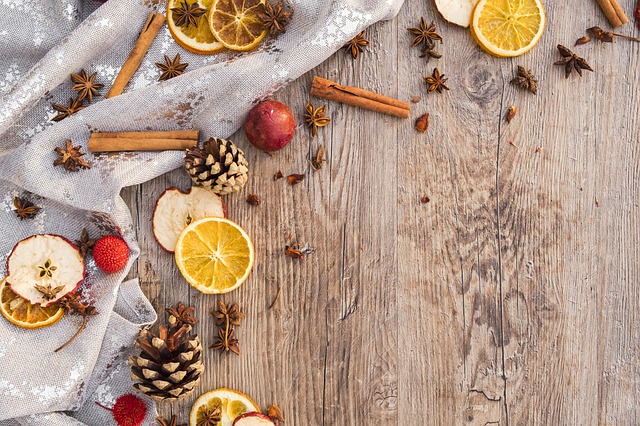Spice up the holidays and boost your health with warm, bright spices like cinnamon, nutmeg, and ginger. You can add further health benefits by combining those spices with foods like oranges and cranberries, or drinks like black tea. So, how will you add spice to the holidays this year?
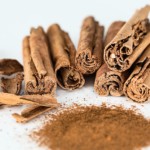 Cinnamon: Whether you’re mulling cider or baking snickerdoodles, cinnamon is a key to many holiday foods. But how can it improve your health? Well, cinnamon may have anti-inflammatory properties, aiding your body’s resistance to both bacterial and fungal infections. It’s even been useful in battling yeast infections. Plus, according to Diabetics Care, cinnamon may help improve your blood glucose and blood lipid levels. Further research is needed, but the initial findings are promising.
Cinnamon: Whether you’re mulling cider or baking snickerdoodles, cinnamon is a key to many holiday foods. But how can it improve your health? Well, cinnamon may have anti-inflammatory properties, aiding your body’s resistance to both bacterial and fungal infections. It’s even been useful in battling yeast infections. Plus, according to Diabetics Care, cinnamon may help improve your blood glucose and blood lipid levels. Further research is needed, but the initial findings are promising.
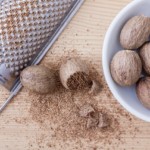 Nutmeg: Like cinnamon, nutmeg also has antibacterial properties. In fact, it can cut down on the bacteria that builds up in your mouth and causes bad breath. Did you know that nutmeg and its oils can be ingredients in toothpaste? Plus, nutmeg can ease digestive distress and reduce flatulence.Be sure to eat nutmeg in small doses — a little bit goes a long way and too much is quite bad for you.
Nutmeg: Like cinnamon, nutmeg also has antibacterial properties. In fact, it can cut down on the bacteria that builds up in your mouth and causes bad breath. Did you know that nutmeg and its oils can be ingredients in toothpaste? Plus, nutmeg can ease digestive distress and reduce flatulence.Be sure to eat nutmeg in small doses — a little bit goes a long way and too much is quite bad for you.
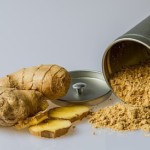 Ginger: When it comes to spices, we may very well have saved the best for last. Ginger is a powerhouse of health benefits, with many reputable studies backing up its great effects. Ginger can be used to reduce nausea and has been especially effective at reducing morning sickness in pregnant women. It also has anti-inflammatory properties that can reduce menstrual and joint pain.
Ginger: When it comes to spices, we may very well have saved the best for last. Ginger is a powerhouse of health benefits, with many reputable studies backing up its great effects. Ginger can be used to reduce nausea and has been especially effective at reducing morning sickness in pregnant women. It also has anti-inflammatory properties that can reduce menstrual and joint pain.
Now let’s move on to the foods that can spice up your holiday table and offer health benefits galore, but which are not technically spices. We’re talking about cranberries, oranges, and tea.
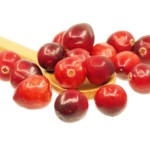 Cranberries: Cranberries are the bee’s knees. According to NCCAM, “Historically, cranberry fruits and leaves were used for a variety of problems, such as wounds, urinary disorders, diarrhea, diabetes, stomach ailments, and liver problems. More recently, cranberry has been used as a folk or traditional remedy for urinary tract infections [UTIs] or Helicobacter pylori (H. pylori) infections that can lead to stomach ulcers, or to prevent dental plaque. Cranberry has also been reported to have
Cranberries: Cranberries are the bee’s knees. According to NCCAM, “Historically, cranberry fruits and leaves were used for a variety of problems, such as wounds, urinary disorders, diarrhea, diabetes, stomach ailments, and liver problems. More recently, cranberry has been used as a folk or traditional remedy for urinary tract infections [UTIs] or Helicobacter pylori (H. pylori) infections that can lead to stomach ulcers, or to prevent dental plaque. Cranberry has also been reported to have
antioxidant and anticancer activity.” MedlinePlus backs up those statements, maintaining, “ Research shows that drinking cranberry juice cocktail can help
prevent repeated UTIs in older women and pregnant women. Additional research shows that drinking cranberry juice can also help prevent UTIs in hospitalized patients. […] Cranberry, as well as many other fruits and vegetables, contains significant amounts of salicylic acid, which is an important ingredient in aspirin. Drinking cranberry juice regularly increases the amount of salicylic acid in the body. Salicylic acid can reduce swelling, prevent blood clots, and can have anti-tumor effects.”
 Oranges: Oranges are well-known for their high vitamin C content, but do you know what the benefits of that content are? Vitamin C is key to the healing of wounds, along with the growth and repair of cells and tissues. It also helps block some of the damage that free radicals can cause. That’s because it’s an antioxidant. Flavanones in oranges may also help reduce blood pressure. Oranges are great. Eat the whole fruit instead of juice for the full complement of nutrients and fiber.
Oranges: Oranges are well-known for their high vitamin C content, but do you know what the benefits of that content are? Vitamin C is key to the healing of wounds, along with the growth and repair of cells and tissues. It also helps block some of the damage that free radicals can cause. That’s because it’s an antioxidant. Flavanones in oranges may also help reduce blood pressure. Oranges are great. Eat the whole fruit instead of juice for the full complement of nutrients and fiber.
 Tea: Now when it comes to health benefits for the holidays, this time we’re focusing on black tea. According to MedlinePlus, “Black tea is used for improving mental alertness as well as learning, memory and information processing skills. It is also used for treating headache and low blood pressure; preventing heart disease, including “hardening of the arteries” (atherosclerosis) and heart attack.
Tea: Now when it comes to health benefits for the holidays, this time we’re focusing on black tea. According to MedlinePlus, “Black tea is used for improving mental alertness as well as learning, memory and information processing skills. It is also used for treating headache and low blood pressure; preventing heart disease, including “hardening of the arteries” (atherosclerosis) and heart attack.
Remember, there’s no need to approach each of these elements one at a time. Try making a recipe that combines several of the healthful foods and spices we’ve featured today. Here’s are two to get you started:
Copyright foodandhealth.com, reprinted with permission.

